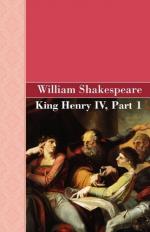|
This section contains 12,607 words (approx. 43 pages at 300 words per page) |

|
SOURCE: Tiffany, Grace. “Puritanism in Comic History: Exposing Royalty in the Henry Plays.” Shakespeare Studies 26 (1998): 256-87.
In the following essay, Tiffany maintains that Henry IV, Parts 1 and 2 represent Shakespeare's ironic commentary on the religious and sociopolitical rhetoric propagated by contemporary Puritans. According to the critic, Elizabethan playgoers would have detected in Falstaff many of the egalitarian aspects of Puritanism and in Prince Hal a Puritan view of monarchic authority as a kind of theatrical performance.
Since the publication of Jonas Barish's seminal The Anti-theatrical Prejudice in 1981, it has become a truism in Renaissance studies that English Puritans despised English theater.1 However, though it is undeniable that many Puritan moralists condemned the “chappel of Satan,” as Anthony Munday called the London playhouse,2 the relationship of many “precise” Protestants, or Puritans, to late-sixteenth- and early seventeenth-century theatrical entertainment was complex and ambivalent. Although Puritan ministers like John Rainholds opposed all...
|
This section contains 12,607 words (approx. 43 pages at 300 words per page) |

|


